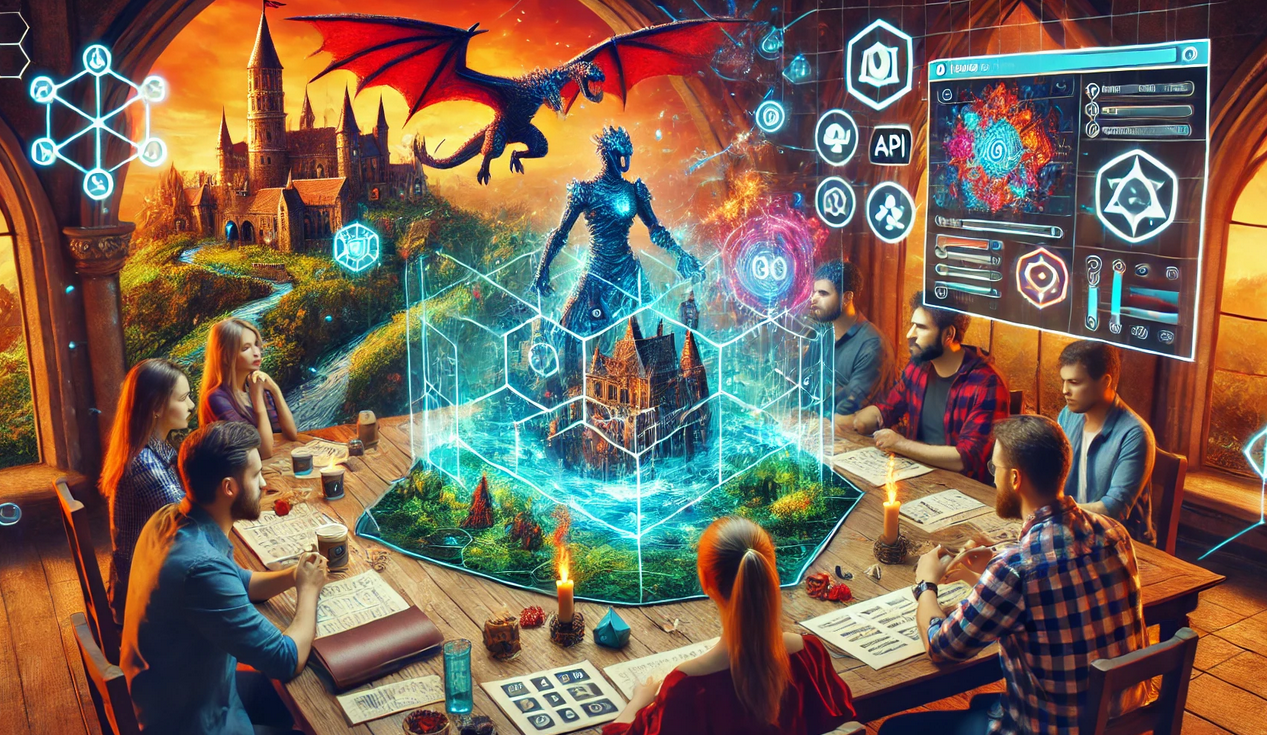The impact of AI on tabletop RPGs is transforming the way we play and experience these games. By integrating artificial intelligence, game masters and players can enhance their gameplay with dynamic storytelling, intelligent NPCs, and immersive environments. This article explores how AI is revolutionizing tabletop RPGs and what this means for the future of gaming.
AI technology in tabletop RPGs provides game masters with tools to create more engaging and unpredictable narratives. With AI, the story can evolve in real-time based on players’ decisions, creating a more interactive and immersive experience. For instance, AI can generate complex plots, develop character backstories, and even adjust the difficulty level to match the players’ skill sets. Consequently, game masters can focus more on facilitating the game rather than managing every detail.
Additionally, AI-driven NPCs (non-player characters) significantly enhance the gaming experience. Traditionally, NPCs follow scripted behaviors, but with AI, they can react to players’ actions in more realistic ways. These intelligent NPCs can remember past interactions, adapt their strategies, and provide unique challenges, making the game world feel more alive and dynamic. This level of interaction adds depth to the game, encouraging players to think strategically and creatively.
Moreover, AI can assist in managing the game mechanics, streamlining processes that are often time-consuming. Automated calculations for combat, loot distribution, and character progression allow for a smoother gameplay experience. Players and game masters can spend less time on administrative tasks and more time on the actual gameplay. This efficiency makes the game more accessible to newcomers who might be intimidated by complex rules and systems.
Furthermore, AI can be utilized to create richly detailed environments and scenarios. Through procedural generation, AI can develop expansive game worlds filled with unique locations, quests, and challenges. This technology ensures that each campaign is distinct, offering endless possibilities for exploration and adventure. Players can enjoy a fresh experience every time they embark on a new journey, keeping the game exciting and engaging.
The impact of AI on tabletop RPGs extends beyond just gameplay enhancements. It also opens up new opportunities for storytelling and creativity. Game designers can experiment with different narrative structures, character arcs, and world-building techniques. AI can provide insights and suggestions that inspire new ideas, pushing the boundaries of what is possible in tabletop RPGs.
Despite these advancements, some purists may argue that AI detracts from the traditional tabletop RPG experience. They believe that the human element is crucial, as the spontaneity and creativity of a human game master cannot be replicated by AI. However, AI is not meant to replace human game masters but to augment their abilities. It provides tools that enhance the storytelling process, making it easier for game masters to create memorable experiences for their players.
To conclude, the impact of AI on tabletop RPGs is undeniably profound. It enhances storytelling, creates intelligent NPCs, streamlines game mechanics, and generates immersive environments. As AI technology continues to evolve, it will undoubtedly unlock new possibilities for tabletop RPGs, making them more dynamic and engaging than ever before.
For those interested in diving deeper into the world of AI-enhanced tabletop RPGs, Click Here to purchase a comprehensive guide.
